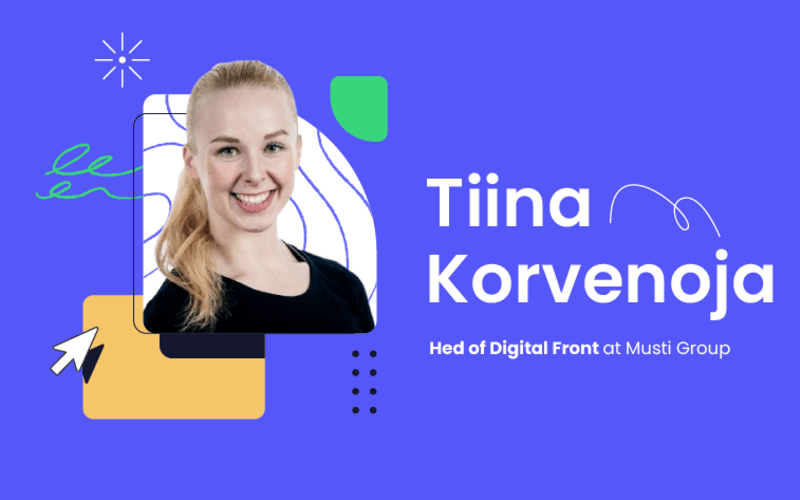We spoke to their CEO and founder, Alari Aho, about how their company helps remote employees and employers find a lasting match, and how they envision the future of work looks like.
In the past few years, we’ve seen plenty of world-famous companies shift to fully remote, or partly remote working. How has this affected your business and clientele?
At Toggl, we’ve been one of the first few nonconformists to go fully remote in 2014. It was a pretty new concept at the time and we had no idea whether it would work, but fast-forward to 2022, and remote work is the thing. It’s been really rewarding to be part of the ecosystem of building the remote future.
When Covid hit and businesses scrambled to adapt to the new normal, we saw a tremendous uptick in demand for tools that are built for remote work. You may know we have three different products under the Toggl umbrella – Toggl Track, Toggl Plan, and Toggl Hire. And while they each solve a different problem, they’re built to help teams work more efficiently and feel more productive. Exactly the kind of goals most companies chase after in a recession.
I’d say hiring has been one of the harder-to-master aspects of remote work for most companies. Although interviews moved online, the recruitment process remained the same: most companies still screen via CVs and recruiter calls; many companies are still hiring on a hunch—no comparable data to help shortlist top candidates or spot superstars early; teams struggle to have meaningful signals that someone is as capable as they say they are. We saw these same problems crop up across different industries, different roles, and company sizes. So you can say the global shift to remote work has confirmed our long-held theory – remote work requires remote-first tools.
Finden Sie Ihren nächsten Entwickler
Loslegen
Toggl Hire was built to help companies test and select the best candidates from large pools of applicants. Were you afraid that people would be afraid of losing that personal touch in hiring when being presented with this solution?
We like to say that Toggl Hire is like a magic quality filter for your talent pipeline. But one thing we don’t want it to be is another employer-centric tool that treats candidates as numbers. Skills-based hiring actually levels the playing field for all applicants:
- It evaluates people based on their practical skills, not their resume-writing ability
- It removes biases and lets the best-fit candidates move forward it gives candidates instant feedback and reduces the chances of ghosting
- It’s a low-effort, low-commitment exercise that respects candidates’ time
Essentially, it doesn’t take away from the hiring process – you still need to chat to candidates face-to-face and give them the opportunity to interview you.
But it helps you spend less time interviewing poor-fit candidates, which is a win-win for both sides. Depending on your hiring philosophy, you decide where in the hiring process to introduce the skills assessments – it could be the first screening step or the later-stage homework assignment.
We see fairness and transparency as a byproduct of a skills-first recruiting process. Let the skills do the talking. When you select talent based on their technical and cultural fit for the role, there is no room for unconscious biases and favoritism.
One of the value propositions I came across when researching your company was that you aim to make recruitment fair. What does Toggl Hire do to trump the lack of fairness, transparency, and feedback in hiring?
Yes, that is definitely one of the biggest upsides of skills-based hiring. Is it fair to reject applications just because they don’t hit certain keywords? Or prioritize CVs that are half made up (sorry, written by a professional resume writer) over those that state facts simply?
We see fairness and transparency as a byproduct of a skills-first recruiting process. Let the skills do the talking. When you select talent based on their technical and cultural fit for the role, there is no room for unconscious biases and favoritism.
Your company also operates fully remotely. What are your personal must-haves in a remote worker?
We always assess candidates’ ability to work remotely. What we look for is the capability to think and work independently, excellent communication skills, the ability to gather information, and a self-starter mentality. Remote work is not for everyone and we make it a priority to seek out people who thrive in an asynchronous environment.
You can’t force culture or engagement – the best way to motivate the team is to listen to their needs and deliver on your promise.
How do you yourself manage to keep a high level of employee engagement and boost morale in a remote team?
Our strategy is to hire really great people and get out of their way. You can’t force culture or engagement – the best way to motivate the team is to listen to their needs and deliver on your promise.
At Toggl Hire, we try to foster an environment that gives everyone the freedom and ownership to do their best work. Of course, we also have some cool company perks, such as a home office stipend, a wellness budget, a learning fund, all-expenses-paid quarterly meetups, and asynchronous working hours. Everyone is different and cares about different things, so we try to balance values and culture with real-life tangible benefits to keep employees happy and productive.
The CTO's guide to different hiring models
How to hire for a fast-growing tech company
On the other side of the coin, what are some of the challenges you’ve faced when building your now-established remote company? What are your tips for your entrepreneurs who need to overcome these challenges?
When we initially decided to go remote, everything was a challenge. But we struggled with hiring the most – assessing candidate’s technical capabilities was really difficult. People would be confident and charming during the interviews but then couldn’t deliver the work they said they were qualified for. Toggl Hire was born out of this internal frustration with hiring remote talent.
Of course, the learning curve with remote collaboration and information sharing was steep, too. We had to really double down on documentation and create new, structured ways how to communicate internally. We’re now relying heavily on Notion as a team wiki and Slack for day-to-day discussions. If there’s one tip I could share with soon-to-be remote teams is to build systems from the start!
I think the future is distributed. Remote work is not going anywhere, so companies should think deeply about their recruitment and growth strategy. Is it worth limiting your talent strategy to a commuting radius?
How do you envision hiring and working in the future?
I think the future is distributed. Remote work is not going anywhere, so companies should think deeply about their recruitment and growth strategy. Is it worth limiting your talent strategy to a commuting radius?
In terms of the future of hiring, everyone’s growing really tired of fake CVs and exaggerated titles – it’s becoming increasingly more challenging to separate fiction from reality. And businesses can’t afford to waste time on poor-fit candidates or make bad hiring decisions – it’s too expensive and in the current economic environment, too risky. My prediction is that we’ll soon make CVs a secondary source of information in the hiring process–why ask about skills and know-how when you can see it demonstrated? And as companies adopt skills assessments, recruiters will gain back their time – instead of manually screening candidates, they’ll be able to focus on building their talent pipeline and nurturing relationships. It’s really exciting times for the recruitment industry!
 English
English





